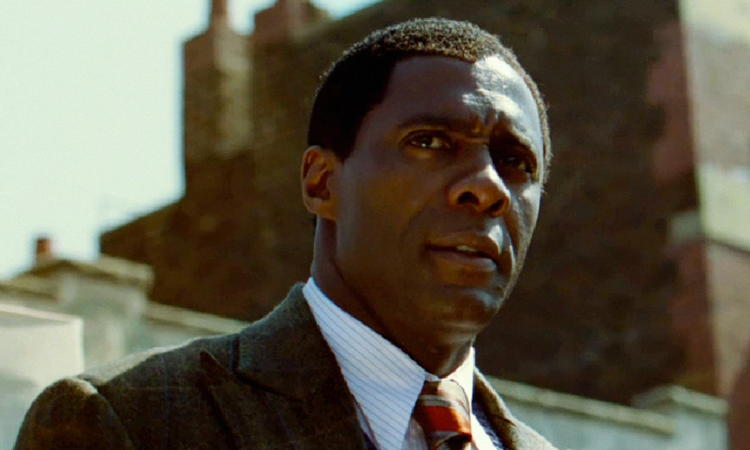By Margeaux Johnson · November 12, 2013

Mandela. The name remains an international symbol of peace and freedom. Nelson Mandela, a revolutionary South African leader, became the symbol of South Africa’s turbulent anti-apartheid movement. There is countless information on the legendary leader, and several movies (dating back to Danny Glover’s performance as Mandela in the 1987 TV movie) dedicated to his work and character. The challenge in this adaptation was taking a lengthy memoir and converting it into a streamlined narrative that kept the audience involved for nearly three hours. Director Justin Chadwick (The Other Boleyn Girl) managed to accomplish this with significant help from two solid performances.
Mandela captures over forty years of beauty and brutality in South Africa. The film begins with a very young Mandela going through a traditional rite of passage. Entering the ritual as a clan of young, inexperienced boys, they emerge as men. These early scenes parallel the life that Mandela lived-from a young ambitious attorney and ladies’ man to a political activist and prisoner. Chadwick thrives in providing rich imagery throughout the film, particularly in his reenactment of the Sharpeville massacre that killed 69 unarmed black protesters at a police station.
While Chadwick relied on heavy imagery to recreate Mandela’s life, it was the actors who were able to connect the characters to their turbulent surroundings. Idris Elba (Prometheus) gave a strong performance as Nelson Mandela. Elba nailed the accent and gave us a resilient, intelligent Mandela that seemed more interested in the consequences of his actions than the action itself. The stunning, and scene-stealing Naomie Harris (Skyfall) gave an emotional performance as Winnie Mandela. Harris provided a truthful performance of a girl forced into becoming a woman. During Nelson’s imprisonment, Winnie is held in solitary confinement for sixteen months. Despite her cruel treatment, Winnie maintains her spirit and emerges a focused woman bent on fighting back. From being harassed and imprisoned by the police to having political differences with her husband, Winnie Mandela became just as important as Nelson in the struggle to end apartheid.
If you’re looking to learn more about the icon that is Nelson Mandela, to gain insight on the thoughts and motivation behind his actions, this is not the film for you. The script relies on telling the story of Mandela, the political icon, rather than delving into the shortcomings and missteps of Mandela, the man. The film’s success lies in its’ ability to reenact pivotal historical moments in South Africa’s history. Chadwick detailed what seemed like every moment of Mandela’s life, enforcing the iconic image we continue to bare today.
Poignant, beautifully shot, gracefully reenacted, Mandela is a film that fits snugly into the buzzworthy period pieces of 2013. The film is a complete historical account of the events that shaped Mandela into South Africa’s first black President.